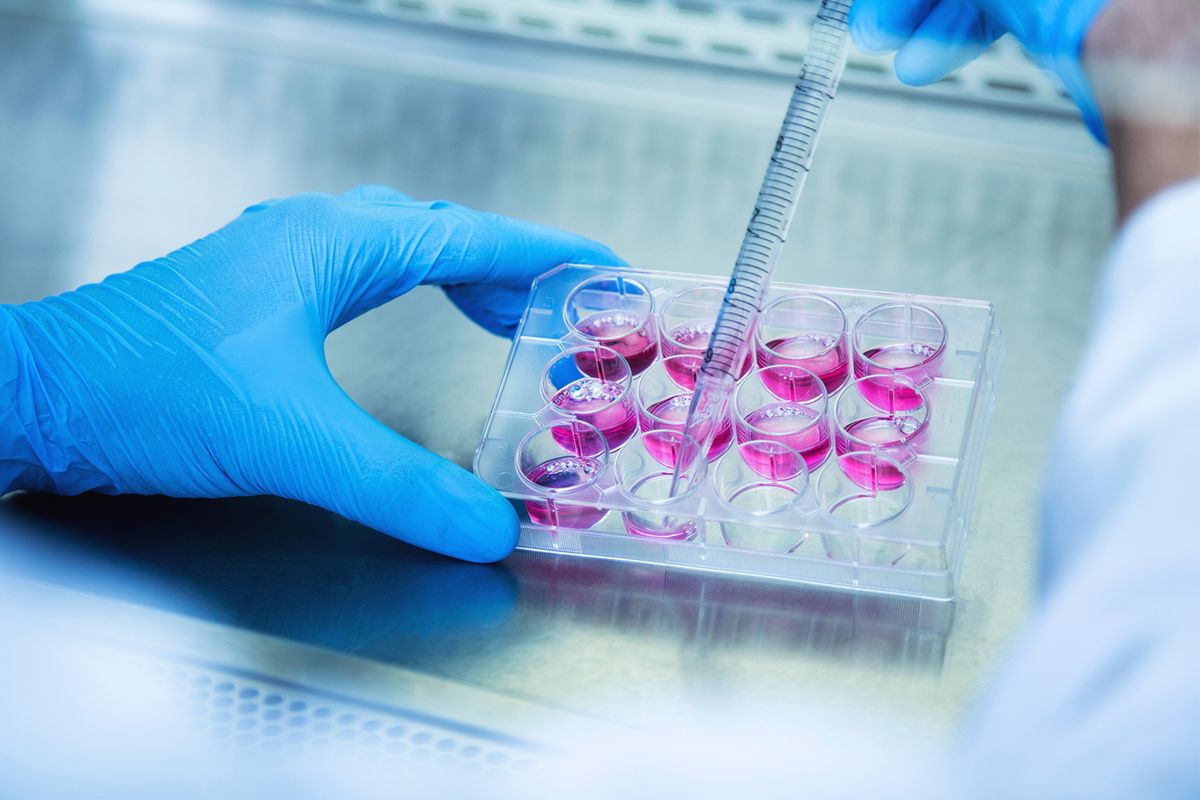
Bioprocessing is a fascinating field that combines biology, chemistry, and engineering to create products from living organisms. Ever wondered how your favorite yogurt gets its tangy flavor or how vaccines are made? That's bioprocessing at work! This science involves using cells, enzymes, and microorganisms to produce everything from food and beverages to pharmaceuticals and biofuels. It's a key player in sustainable development, helping reduce waste and create eco-friendly products. Whether you're curious about how insulin is produced or the role of bioprocessing in renewable energy, this list of 37 facts will give you a deeper understanding of this incredible field.
What is Bioprocessing?
Bioprocessing involves using living cells or their components (like enzymes) to obtain desired products. This field combines biology, chemistry, and engineering to create everything from medicines to biofuels.
- Bioprocessing is essential in producing antibiotics, vaccines, and hormones.
- The process often uses microorganisms like bacteria, yeast, or fungi.
- Fermentation is a common bioprocessing technique, especially in brewing and pharmaceuticals.
- Bioprocessing can convert waste materials into valuable products, reducing environmental impact.
- Enzymes used in bioprocessing can speed up chemical reactions without being consumed.
Historical Background of Bioprocessing
Understanding the history of bioprocessing helps appreciate its evolution and significance in modern science.
- The first recorded use of bioprocessing dates back to ancient Egypt for brewing beer.
- Louis Pasteur's work in the 19th century laid the foundation for modern bioprocessing.
- The discovery of penicillin in 1928 by Alexander Fleming revolutionized bioprocessing in medicine.
- The development of recombinant DNA technology in the 1970s allowed for more advanced bioprocessing techniques.
- The Human Genome Project, completed in 2003, has furthered bioprocessing applications in personalized medicine.
Applications in Medicine
Bioprocessing plays a crucial role in developing and manufacturing medical products that save lives.
- Insulin for diabetes treatment is produced using genetically modified bacteria.
- Monoclonal antibodies, used in cancer therapy, are created through bioprocessing.
- Vaccines for diseases like hepatitis B and HPV are products of bioprocessing.
- Bioprocessing helps produce blood clotting factors for hemophilia patients.
- Gene therapy relies on bioprocessing to deliver therapeutic genes to patients.
Environmental Impact and Sustainability
Bioprocessing offers sustainable solutions to environmental challenges by converting waste into useful products.
- Bioprocessing can produce biofuels from agricultural waste, reducing reliance on fossil fuels.
- Bioplastics made through bioprocessing are biodegradable and reduce plastic pollution.
- Wastewater treatment plants use bioprocessing to break down organic pollutants.
- Composting relies on bioprocessing to turn organic waste into nutrient-rich soil.
- Bioprocessing can help clean up oil spills through bioremediation.
Industrial Applications
Beyond medicine and the environment, bioprocessing has numerous industrial applications.
- The food industry uses bioprocessing to produce cheese, yogurt, and bread.
- Bioethanol, a renewable fuel, is produced through the fermentation of crops like corn and sugarcane.
- Bioprocessing helps create enzymes used in detergents to break down stains.
- The textile industry uses bioprocessing to produce dyes and improve fabric quality.
- Biopesticides made through bioprocessing offer a natural alternative to chemical pesticides.
Future of Bioprocessing
The future of bioprocessing holds exciting possibilities as technology advances and new discoveries are made.
- CRISPR technology is revolutionizing bioprocessing by allowing precise genetic editing.
- Advances in synthetic biology could lead to the creation of entirely new organisms for bioprocessing.
- 3D bioprinting uses bioprocessing to create tissues and organs for transplantation.
- Bioprocessing could play a role in space exploration by producing food and medicine in space.
- Nanotechnology combined with bioprocessing could lead to new drug delivery systems.
Challenges in Bioprocessing
Despite its potential, bioprocessing faces several challenges that need to be addressed.
- Scaling up bioprocessing from the lab to industrial production can be difficult.
- Contamination is a significant risk in bioprocessing, requiring strict controls.
- High costs of bioprocessing equipment and materials can be a barrier.
- Regulatory hurdles can slow down the development and approval of bioprocessed products.
- Ethical concerns about genetic modification and synthetic biology need careful consideration.
Educational and Career Opportunities
Bioprocessing offers numerous educational and career opportunities for those interested in science and engineering.
- Universities offer specialized programs in bioprocessing and biotechnology.
- Careers in bioprocessing include roles in research, development, manufacturing, and quality control.
The Final Scoop on Bioprocessing
Bioprocessing is a game-changer in industries like pharmaceuticals, food, and biofuels. It's all about using living cells or their components to create products that benefit us. From making vaccines to brewing beer, bioprocessing is everywhere. It's a blend of biology, chemistry, and engineering, working together to solve real-world problems.
Understanding the basics of bioprocessing helps us appreciate the science behind everyday products. It also opens doors to exciting career opportunities in biotechnology and related fields. As technology advances, bioprocessing will continue to evolve, bringing new innovations and solutions.
So next time you enjoy a yogurt or take a medication, remember the fascinating world of bioprocessing that made it possible. It's a field that's not just about science but also about improving lives and making the world a better place.
Was this page helpful?
Our commitment to delivering trustworthy and engaging content is at the heart of what we do. Each fact on our site is contributed by real users like you, bringing a wealth of diverse insights and information. To ensure the highest standards of accuracy and reliability, our dedicated editors meticulously review each submission. This process guarantees that the facts we share are not only fascinating but also credible. Trust in our commitment to quality and authenticity as you explore and learn with us.
